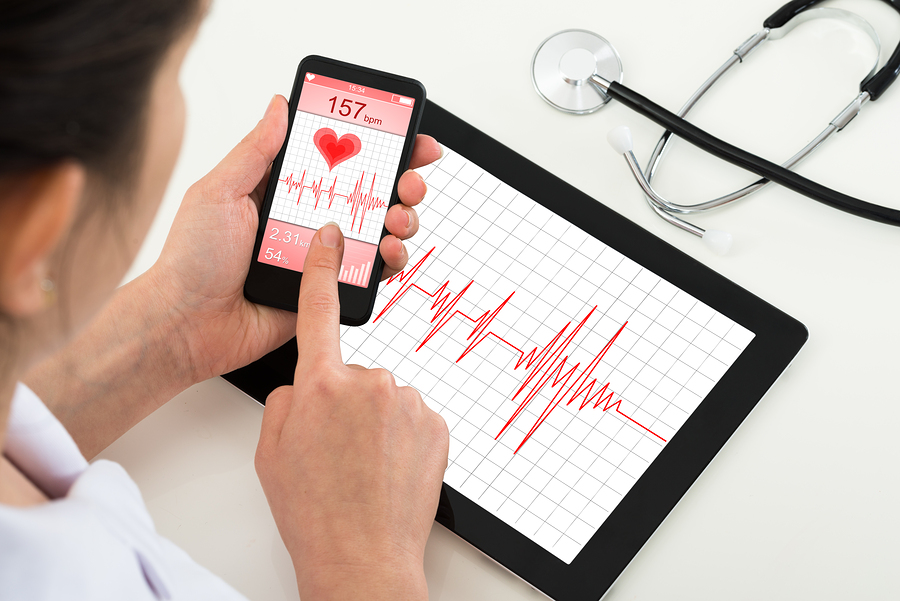The health sector is undergoing a real revolution with digital health: improved treatment results, lower costs, ease of access to care and sharing of interpretations between stakeholders. Canada Health Infoway estimates a $16 billion in benefits from investments in telehealth, diagnostic imaging, drug information systems…. since 2007 (10 years).
EVERYONE IN THE DIGITAL AGE
Since the middle of the 2000s, the health system has deployed a wide variety of digital health solutions. As an example, in 2013 Canada had close to 45,000 users of Electronic Health Records (EHR). Between 2010 and 2014 the percentage of practitioners using EHRs rose from 41% to 64%. Among patients, interest in the technology is just as significant. Consumers are no longer hesitant to connect to the internet or to surf mobile solutions “prescribed” by their doctors. 90% of them consider their experience on the web to be satisfactory and 96% believe that the health system must become computerized.
HEALTH AT THE FINGERTIPS
At present, patients who are hooked on technology can obtain information about their state of health, monitor vital signs, their respiratory frequency, the electrical activity of their cardiovascular system, etc. With their smartphone, the data will be transmitted directly to the specialist or to an analytical engine that will generate alerts and allow the patient to quickly make a clinical or administrative decision. At the same time, mobile devices will let the patient take advantage of virtual consultations, remote monitoring in the case of chronic illnesses or after discharge from hospital.
In 2017, 75% of Canadians had heard about digital health, but less than a quarter of patients used online services to renew their prescriptions (22%), access and view their medical records online (20%) , make appointments with medical professionals (17%) and consult health professionals online (14%). However, 60% of patients would appreciate accessing and using these services.
REQUIREMENTS THAT MEET AMBITIONS
According to Canada Health Infoway, mobile health can only develop if the health sector’s various players:
are convinced about the professionalism of software publishers, the reliability of their applications and the accuracy of their data;
Invite their information and communication technology department to design a mobile health strategy within digital health, ensure that all new developments include a mobile user interface option, invest strategically so that smartphones and tablets can be harmoniously integrated in the health network, create standards for management of devices and applications that contain confidential personal and practitioner data, make use of specialized services for backing up the content of devices and applications so the practitioner can find and prescribe the best clinical solutions for their patient.
So that the many benefits of mobile health (convenience, accessibility at all times, diversity of platforms and wide variety of applications) are translated into gains for the health system, it must opt for solutions that transform the network, ensure its sustainability and increase patient involvement.
To be read: Canada Health Infoway, Annual Report
